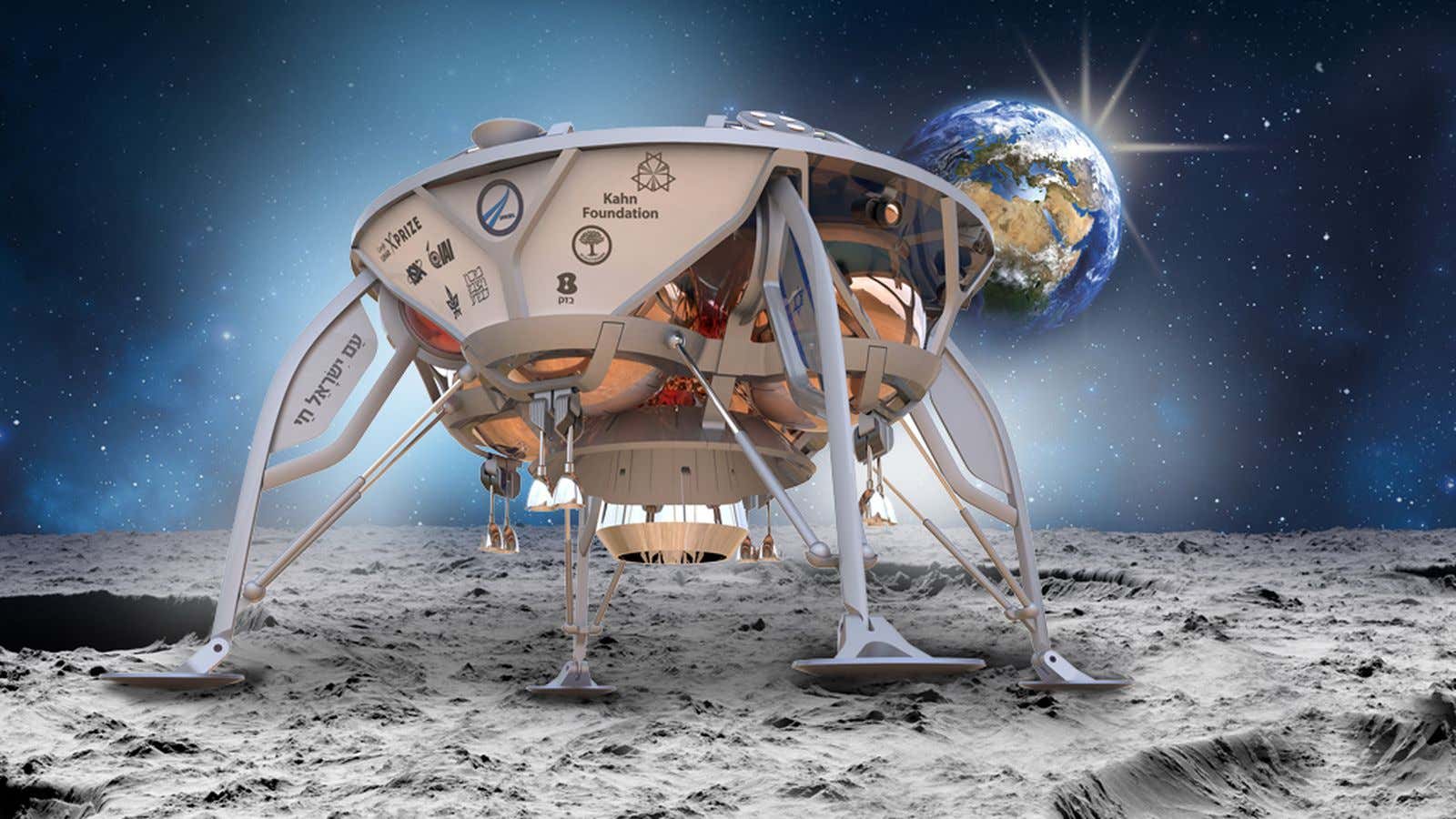Google has finally lost patience. After extending the deadline for the Lunar XPrize twice already, the tech giant has said it won’t do it again. That deadline is March 31, and none of the five remaining teams in the competition are ready to launch a spacecraft to the moon in the next two months.
The Lunar XPrize was launched in 2007 on the heels of the success of the Ansari XPrize—the first of its kind. The $10-million prize was given to Scaled Composites in 2004—about eight years after the competition began—for building a reusable spacecraft that carried humans to space twice in two weeks.
How do you beat that? Try an actual moonshot. The winning team would get $20 million if it could send a spacecraft to the moon, drive it for at least 500 meters on the surface, and provide a live broadcast of all the happenings. The initial deadline was 2012, which was first extended to 2014 and then to 2018.
But even 11 years wasn’t enough. “This literal ‘moonshot’ is hard, and while we did expect a winner by now, due to the difficulties of fundraising, technical and regulatory challenges, the grand prize will go unclaimed,” said XPrize founder Peter Diamandis and XPrize CEO Marcus Shingles in a statement.
“It’s difficult to put a deadline on a future that has such massive and unprecedented dependencies, particularly when it’s calling on a privately funded group to do something that only three super-powers have accomplished to date,” Bob Richards, CEO of Moon Express, one of the finalist teams, wrote in Space News.
Nevertheless, the Lunar XPrize spurred some successes. In total, the participating teams raised more than $300 million, and each of the finalist teams plans to continue to work on the mission. Those teams have members from the US, Israel, India, Japan, UK, Croatia, and Malaysia—where hundreds of jobs were created in the private space industry. Moon Express won regulatory approval from the US government to land on the moon—a first for a private mission.
Some of the teams are very close to launch. SpaceIL—the Israeli team—says it can achieve the goal before the end of 2018. Hakuto—the Japanese team—says its lander is ready, and it’s waiting for Team Indus—the Indian team—to finalize the spacecraft on which Hakuto’s lander will ride. Moon Express says the prize was never its sole goal, and continues to work on reducing the cost of getting to the moon, where it wants to build a mining business. While Moon Express appears to have the money to continue its work, neither SpaceIL nor Team Indus have been able to raise enough to finish the job.
If nothing else, the Lunar XPrize has helped put the moon back on the space-exploration map. In the last decade, the space agencies of India and China have landed probes on the moon, and China is on track to send humans to the moon. The US has put going back to the moon as a key goal for its future in space. The startup Astrobotic, which did not make it as a finalist in the XPrize, says it will put a robot on the moon by 2019.
As Quartz has written previously:
The XPrize takes its inspiration from the Orteig Prize, which in 1919 challenged anyone in the world to try to complete the first non-stop flight between Paris and New York. In the end, teams competing spent more than $400,000 trying to win $25,000 (about $6 million and $375,000 in today’s money, respectively). The winner, Charles Lindbergh, changed the commercial aviation industry forever when he made that first non-stop, trans-Atlantic flight in 1927. Barely two years later, more than 170,000 passengers flew across the ocean on commercial airlines.
The XPrize has remained true to the bold vision of setting its goals at the edge of what’s possible. “If every XPrize competition we launch has a winner, we are not being audacious enough,” said Diamandis and Shingles.
Read next: Three reasons Trump’s plan to return to the moon makes sense
Correction: Astrobotic participated in the Lunar XPrize but didn’t make it as a finalist.
